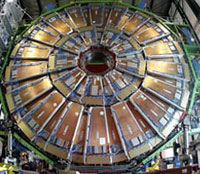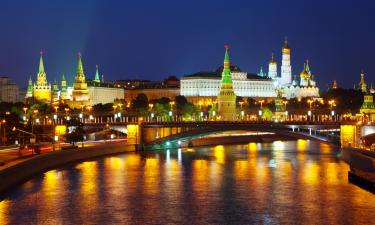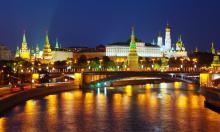Russia to build linear collider
Russian scientists gathered for a press conference after the successful launch of the Large Hadron Collider (LHC). Academician Viktor Matveyev put forward a suggestion to build another accelerator that would be a lot more powerful than the LHC. The academician said that it could be possible to build the Russian collider in the Moscow region.

The scientific community currently discusses a possibility to build a large linear collider of electrons and positrons. Such an accelerator would not require strong magnets, which simplifies its construction.
“Russian scientists from the United Institute of Nuclear Research in Dubna [the Moscow region] suggested an idea to the international committee to build such an accelerator in Russia’s Moscow region,” the academician said.
The scientist added that the international committee responded to such a suggestion very seriously.
“The committee sent an influential delegation to Dubna to study the suggestion in detail, examined the proposed locations and concluded that it could be one of the best places for such a construction,” Viktor Matveyev said.
The project would let Russia make a large step forward in terms of the national technological development, the academician said.
It is worthy of note that the idea of the collider originally appeared in Russia.
“The very first idea to use the method of colliding beams of particles in high-energy physics appeared in Russia. It was born in Budker’s Institute of Nuclear Physics of the Siberian Division of the Academy. Budker proved in his institute that it was not just science fiction, but a brilliant idea which allows to enlarge the energy generated as a result of particle collision,” the academician said.
The first collider was made in Russia’s Novosibirsk. The collider is still in use, the scientist said.
Eduard Boos, another participant of the conference, reminded that the Soviet Union had plans to build a large collider in the Moscow region too. A 21-kilometer-long tunnel was built for the collider, but the construction was frozen during the 1990s.
The Large Hadron Collider is the largest particle accelerator ever built. Several thousands of physicists from 85 countries, including about 700 Russian scientists, participated in its development. The data volume generated by the LHC information system is so huge that it would take a stack of CDs 137 meters high filled with those data every second.
Subscribe to Pravda.Ru Telegram channel, Facebook, RSS!




